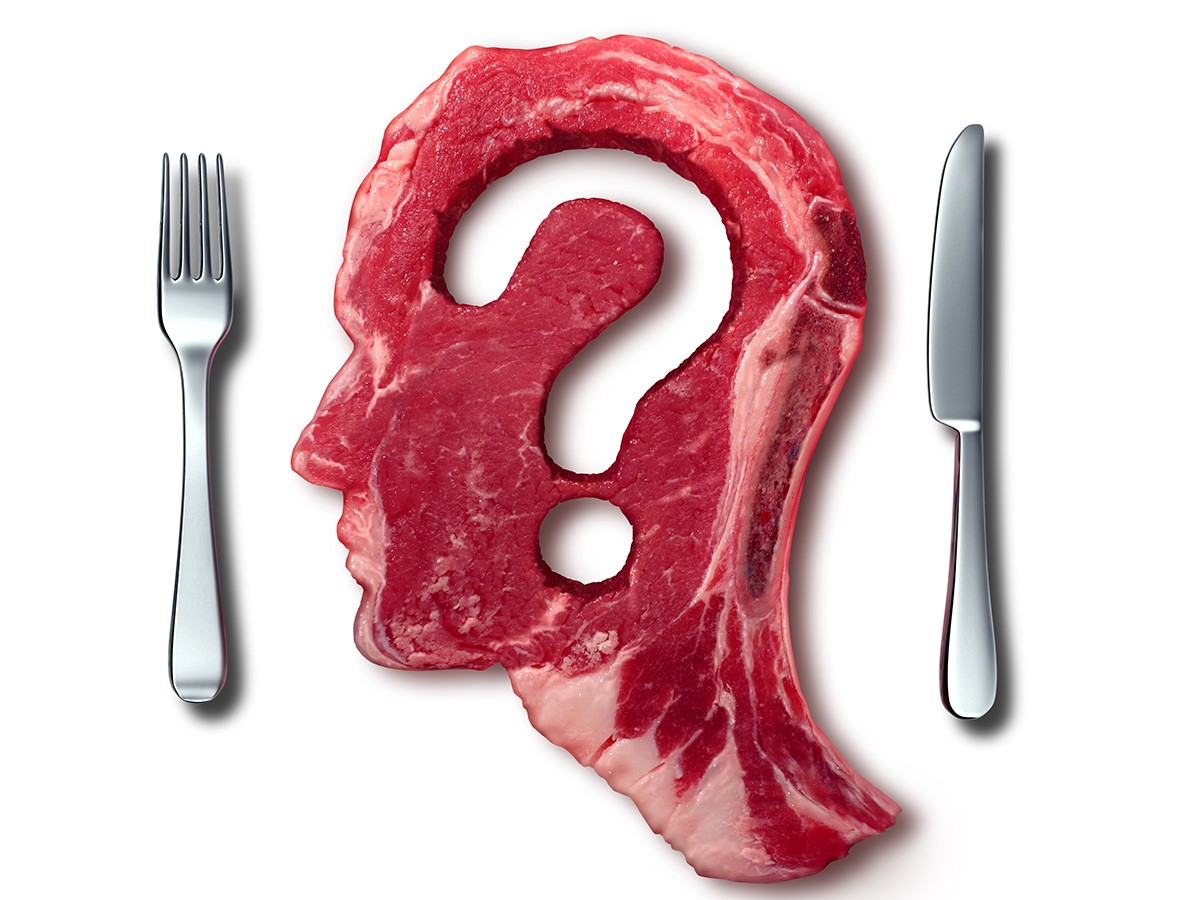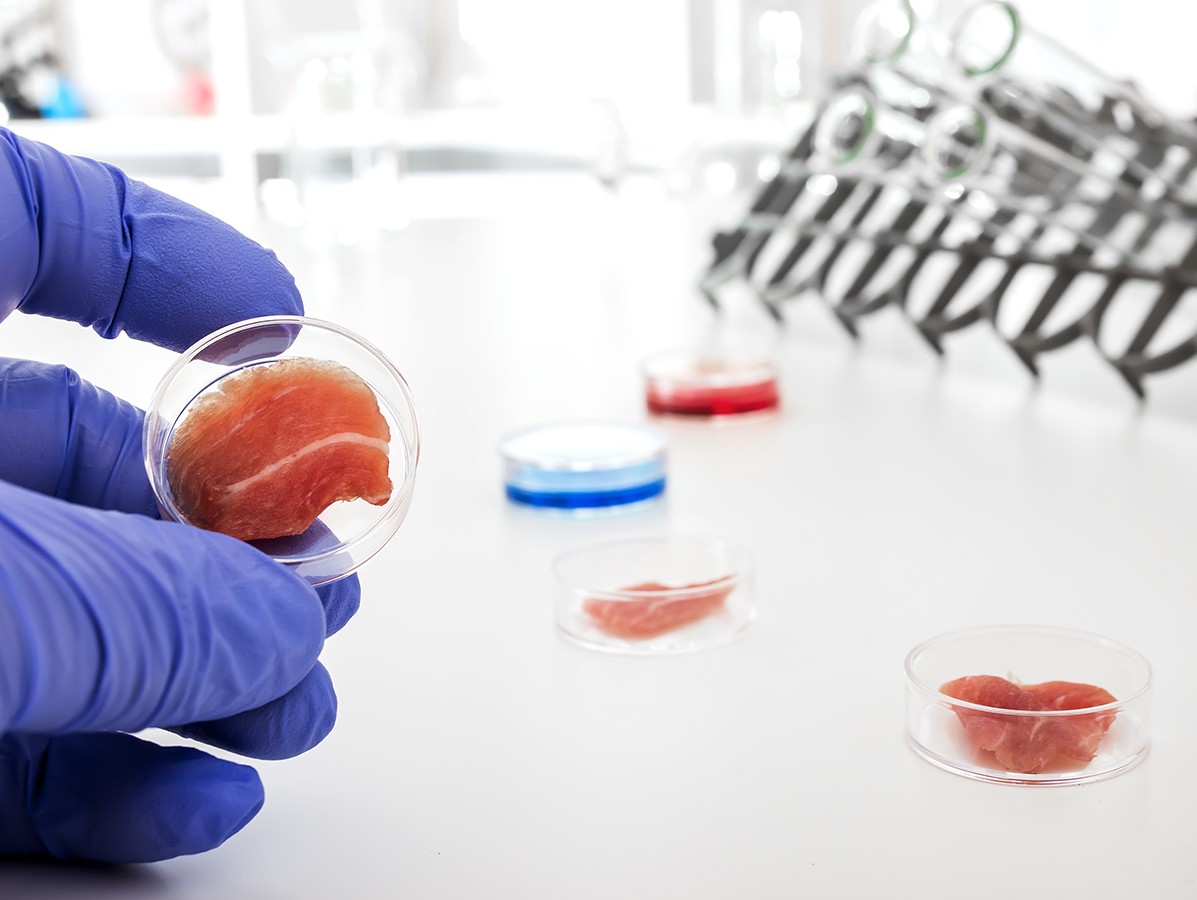
Last summer the 65th edition of the International Congress of Meat Science and Technology (ICoMST) took place. In Potsdam, Germany, 494 participants gathered to share their knowledge with the other conference visitors on 367 posters and in 420 abstracts. The need to share knowledge and progress in research is particularly great.
For four days, the theme 'Meat for Diversifying Markets' was the focus of the ICoMST congress this summer. A programme full of interesting lectures and presentations on a variety of topics that provoked lively discussions, all sharing one common factor: 'meat'.
Germany is known as a traditional and fairly conventional, meat-oriented society. Nevertheless, the organization had the courage to include controversial topics: there were presentations regarding meat substitutes (meat analogues), cultured meat, the ethics surrounding the killing of animals for meat consumption, and the climate impact of livestock farming. It was striking that the attending delegates, especially people from North and South American countries, were not very enthusiastic about the choice of highlighting 'meat substitutes' and 'the climate impact of livestock farming'.
Swedish scientists have examined the extent to which it is important for consumers within the EU that animal welfare is taken into account when keeping animals for the food industry. Very important, says 86% of Cypriots and 33% of interviewed residents of Hungary. In the Netherlands, 47% of the respondents say that this issue is very important. 59% of the Dutch say they even want to pay more for meat from a more animal-friendly livestock farming system.
There is a growing market share for products with an animal welfare system that is positive for consumers. According to the researchers, companies that handle their animals well have lower production costs and fewer animal losses. The Welfare Quality Network, set up by the EU, gives direction with its four principles: good housing, good feeding, appropriate behaviour and good health. If you want to know more about backgrounds and technological solutions, go to www.welfarequalitynetwork.net
In his presentation, Danish professor Mickey Gjerris approached the ethical issue of 'turning animals into meat'. This subject easily degenerates into heated discussions between carnivores and vegetarians. Arguments range from 'eating meat is a nutritional need and an integral part of human culture' to 'meat consumption is a cruel, unnecessary luxury that makes people insensitive to the suffering of certain members of a human community'. The presentation focused on the consequences of animal products for humans and nature and the direct consequences for production animals.
A direct consequence for man and nature is emissions from animal farming, in particular from cattle farming. A large reduction in emissions can be achieved by switching to a vegetarian or vegan diet: a 20-85% reduction. Replacing the meat of ruminants with the meat of animals with one stomach (pig, chicken) results in a 20-35% reduction. A healthy diet with little ruminant meat: up to 35% reduction. The discussion about animal welfare is often based on assumptions and there is little consensus about this. Gjerris emphasized that farmers can ensure that the animals perish better or worse: "They are living beings with a conscience. Try to maximize their welfare".

A hot-item is designing protein-rich meat substitutes with plant-based ingredients and how to give these products a tasty structure using co-extrusion. The process that takes place in the extruder has now been considerably improved, partly thanks to scientific research. We understand the kinetics and rheological behaviour of the mass in an extruder better and better by means of analyses with a rheometer that is put under pressure. It is even possible to make a certain fibre structure, although this is not yet the same as the anisotropic meat structure. After this presentation, many scientists expressed their astonishment at the researchers' approach and the results achieved so far.
Mark Post talked about the progress of the development of cultured meat that is produced using the tissue engineer principle. He said that the technique of producing the protein from stem cells is well underway, but the formation of collagen and fat still causes some headaches. There is still a lot of development to be done. In the meantime, work is also being done on the legal approval and expansion of the volume. And, certainly not insignificant, consumer acceptance of this innovative source of protein.
From the point of view of a toxicologist, Dr. Steinberg gave his vision on the relationship between meat consumption and the increased risk of developing intestinal cancer. The number of diagnosed cases of colon cancer in Germany has decreased slightly in recent years. Steinberg talked about the risk factors that contribute to the development of colorectal cancer: high consumption of alcoholic beverages, smoking, genetic predisposition, chronic inflammatory bowel disease and low physical activity, but also a low-fibre, high-fat diet, including the consumption of a large amount of red meat.
In his lecture, Steinberg came up with evidence for the hypothesis that the consumption of red meat leads to the formation of nitroso compounds in the human intestine. These endogenously formed compounds can contribute to the development of colorectal carcinomas. For his evidence he presented recent data on the DNA damaging and cell transforming activity of nitrosyl heam; one of the most important endogenously formed nitroso compounds in the intestine. Volunteer studies show that haematin and nitrosyl heam have genotoxic potential. The iron present in the haem molecule plays a crucial role in the transformation process. In agreement with the German Nutrition Society, it is therefore recommended to limit the consumption of red meat and meat products to an amount of 600 grams per week.
The abstracts of all presentations (916 pages!) can be downloaded from www.icomst2019.com/download/
Mainphoto: ©Lightspring/shutterstock.com, lab: ©Alex_Traksel/shutterstock.com
Source: © Vakblad Voedingsindustrie 2019